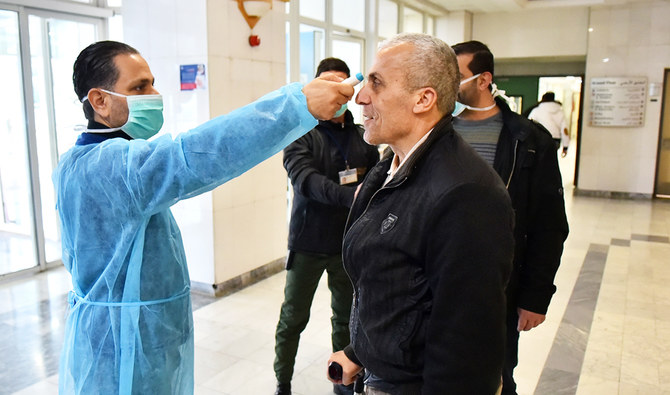
From Fionn Shiner and Maria Lozano -- ACN News -- One hundred days after the explosion in Beirut on 4th August, Aid to the Church in Need (ACN) has revealed details of its aid programme which will enable church bells to ring again across the Lebanese capital. The charity announced that its €5million (£4.53m) aid package will be spent mainly on reconstruction, with churches, a cathedral and a convent among the buildings being repaired. The explosion was triggered by 750 tons of ammonium nitrate, creating one of the largest non-nuclear explosions ever recorded, causing more than 200 deaths, 6,500 injuries and leaving 300,000 people homeless. Among the seven projects confirmed by ACN - with a further 19 being considered - is St Saviour's Melkite Greek Catholic church which lost its roof in the explosion.
Parish priest Father Nicolas Riachy told ACN: "We want to give hope for those who still want to remain here. Our mission is to bring light into the darkness through which we are living. There is no Christianity without the Cross. Christ is our example. It is not easy to be Christians, but many of our people are still very much aware that this land is Holy Land and we cannot abandon it." Father Riachy stressed that the roof repairs were vital before the harsh winter months: "If the first of the winter rains arrive, they will spoil everything.
by AFP — BEIRUT — An adviser to French President Emmanuel Macron met top Lebanese officials on Thursday in a desperate bid …

by arabnews.com -- NAJIA HOUSSARI -- BEIRUT: Lebanon is expected to head into a total lockdown again as the health sector buckles under the pressure of soaring coronavirus cases, with the head of a doctors’ syndicate warning that the spread of the disease among medical professionals meant there would be nobody left to treat infected patients. The Supreme Defense Council meets on Tuesday, under the chairmanship of President Michel Aoun, to take decisive action about a lockdown in light of increasing complaints from doctors and hospital owners that their resources have been depleted. On Monday, the total number of people infected with the virus was more than 95,000, with daily rates sometimes exceeding 2,000, while the number of deaths has reached 725. The number of COVID-19 cases during the first week of November alone hit 13,000, while the total number of cases in October exceeded 42,000 cases, the highest number recorded since the virus was first detected in Lebanon in February. Sharaf Abu Sharaf, who heads the Doctors’ Syndicate, warned: “Lebanon’s continued abandonment of taking strict measures to contain the spread of coronavirus will mean that no one will remain to treat those infected with the virus in hospitals.” He said 17 doctors were in intensive care units, three doctors had died, and that 100 doctors were under home quarantine.
Mirna Doumit, who is head of the Order of Nurses in Lebanon, said the number of people infected in the medical and nursing body had reached 1,500. On Monday it was announced that the director of Tripoli Governmental Hospital was infected with coronavirus. Hariri Governmental Hospital specializes in receiving coronavirus cases. Its general director, Dr. Firas Al-Abyad, said that one infection in every 125 in Lebanon led to death and that this figure rose to one in 10 among the elderly. “Lebanon will enter a new phase of complete lockdown,” he predicted. “Without a complete lockdown, the economic situation will worsen in light of the spread of the virus.” But the idea of a complete lockdown for two weeks, or even a month, has provoked a negative reaction among the Lebanese public. The consensus is that a lockdown is useless without a clear strategy for the next steps.
by By Solange Reyner — newsmax.com — President Donald Trump, should his legal challenges not hold up, is planning to run for …
Khazen History


Historical Feature:
Churches and Monasteries of the Khazen family

St. Anthony of Padua Church in Ballouneh
Mar Abda Church in Bakaatit Kanaan
Saint Michael Church in Bkaatouta
Saint Therese Church in Qolayaat
Saint Simeon Stylites (مار سمعان العامودي) Church In Ajaltoun
Virgin Mary Church (سيدة المعونات) in Sheilé
Assumption of Mary Church in Ballouneh
1 - The sword of the Maronite Prince
2 - LES KHAZEN CONSULS DE FRANCE
3 - LES MARONITES & LES KHAZEN
4 - LES MAAN & LES KHAZEN
5 - ORIGINE DE LA FAMILLE
Population Movements to Keserwan - The Khazens and The Maans
ما جاء عن الثورة في المقاطعة الكسروانية
ثورة أهالي كسروان على المشايخ الخوازنة وأسبابها
Origins of the "Prince of Maronite" Title
Growing diversity: the Khazin sheiks and the clergy in the first decades of the 18th century
Historical Members:
Barbar Beik El Khazen [English]
Patriach Toubia Kaiss El Khazen(Biography & Life Part1 Part2) (Arabic)
Patriach Youssef Dargham El Khazen (Cont'd)
Cheikh Bishara Jafal El Khazen
Patriarch Youssef Raji El Khazen
The Martyrs Cheikh Philippe & Cheikh Farid El Khazen
Cheikh Nawfal El Khazen (Consul De France)
Cheikh Hossun El Khazen (Consul De France)
Cheikh Abou-Nawfal El Khazen (Consul De France)
Cheikh Francis Abee Nader & his son Yousef
Cheikh Abou-Kanso El Khazen (Consul De France)
Cheikh Abou Nader El Khazen
Cheikh Chafic El Khazen
Cheikh Keserwan El Khazen
Cheikh Serhal El Khazen [English]
Cheikh Rafiq El Khazen [English]
Cheikh Hanna El Khazen
Cheikha Arzi El Khazen
Marie El Khazen